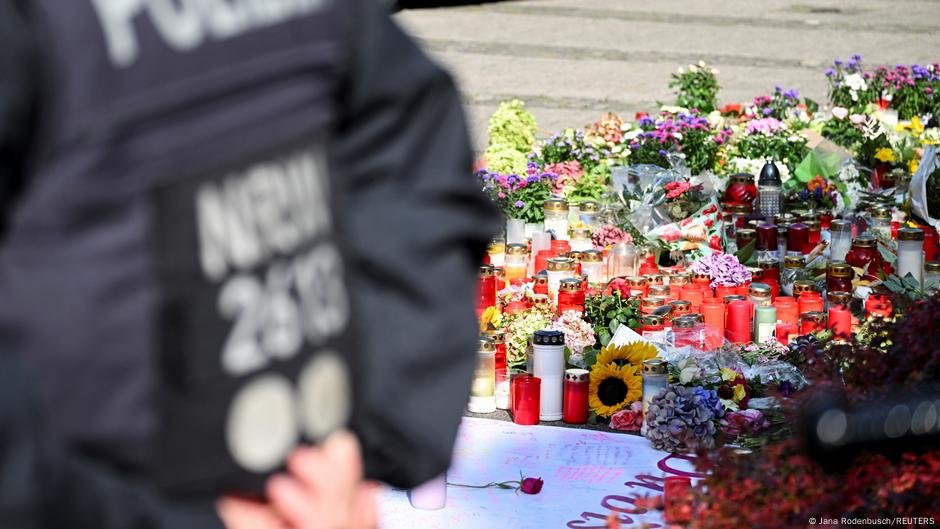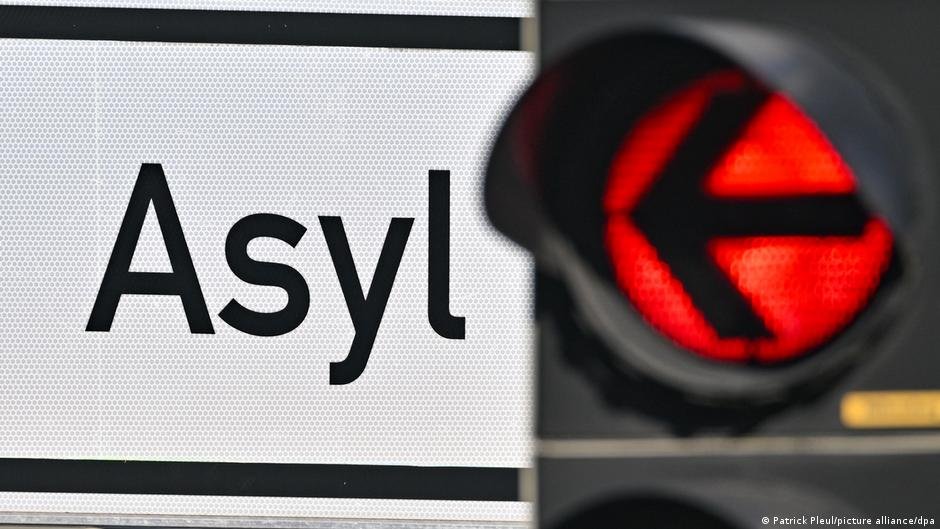The German government's proposed new security package was presented in parliament on Friday, but leaves many parliamentarians unimpressed. While some see the suggestions in the draft bill as too harsh, others feel the document isn't far-reaching enough.
The German federal government presented the final version of a security package addressing various aspects of migration and security policy, which came in response to several fatal knife attacks over the course of the summer.
In broad stokes, the draft law suggests the introduction of stricter asylum guidelines and rules on residence requirements.
It also deals with a set of direct security-related measures, such as introducing tighter gun control and allowing security personnel such as police to have additional powers when needed.
After several rounds of deliberations, which involved public hearings, expert testimony, and several exchanges with the government's Committee on Internal Affairs, the final wording of the bill was presented to the Bundestag, Germany's lower house of parliament on Friday (October 11).

If the draft bill passes the Bundestag, it will then be presented to the Bundesrat, Germany's upper house of parliament, for adjustments.
In theory, such bills can be made law and pass through both houses on the same day. However, it is uncertain whether in this case, such quick progress can be achieved, as the draft bill has attracted several opponents in both houses.
In fact, the so-called security package may fail to even pass the first hurdle of the Bundestag vote, dealing another blow to the already shaky leadership of Chancellor Olaf Scholz and his coalition partners.
Read AlsoSolingen memorial: German president urges migration control
'Like Swiss cheese': security package dismissed by opposition
Among the parties that are staunchly opposed to the federal government's planned security package are the Christian Democrats (CDU), which currently is the biggest opposition party in the Bundestag.
CDU leader Friedrich Merz said he was going to recommend to all members of his parliamentary group that they reject the package.
CDU Secretary General Carsten Linnemann added at a press conference in Berlin on Monday (October 14) that the reason for the party's lack of support of the motion was based on their impression that the measures have "been completely gutted" of achieving the goals they set out to address.
Among other things, Linnemann criticized the planned cuts in social benefits for asylum seekers remaining in Germany despite technically needing to be in another EU state according to the Dublin regulation, which he said had been watered down significantly.

The head of the CDU parliamentary group,Thorsten Frei, meanwhile agreed with that assessment, saying that he expected all the party's MPs to vote against the security package — in addition to enough MPs from other parties for the current bill to fail.
He said the "little package" was now "full of holes like Swiss cheese. It does not deserve the approval of the Bundestag."
Coalition partners also unsure on security package
Even one of the three coalition parties, the Greens, can not be described as standing with a unified front behind the bill.
The youth wing of the party, the Green Youth, has expressed considerable concerns ahead of upcoming leadership polls for the movement this weekend.
Both main candidates have dismissed the security package and said that they don't see the youth wing aligned with the party's current actions in parliament.
Meanwhile, Scholz's other coalition partner, the Free Liberals (FDP), were instrumental in making sure that some of the finer points of the draft bill were changed — in particular those pertaining to privacy laws.
This is why the vote on the security package is also being treated like a litmus test of Scholz's three-way coalition with the Free Liberals and Greens, one year ahead of general elections, due in 2025.
Read AlsoGermany border controls: What this means for refugees and asylum seekers
Failing to please anyone
While the Greens, especially the Youth League, appear to dismiss the security package for allegedly being too draconian, others like the Christian Democrats find it fails to address what they believe are the root causes of violence among immigrants to Germany and respond accordingly.
In concrete terms, the two most contentious amendments include a weaker use of surveillance technology than initially indicated in the original wording of the document; initial plans included far more cross-referencing among criminal databanks and the application of technology such as face and voice recognition, or obtaining biometric data from information on the internet.
This had to be toned down due to concerns about infringing upon privacy laws, brought up in particular by the Free Liberals.

Another issue was the change in wording regarding people pegged to be deported from Germany under the EU's Dublin Regulation. These are nationals of third countries who had already lodged asylum claims elsewhere in the bloc.
The Dublin Regulation stipulates that the first country of registry should be in charge of the entire asylum process — but there are time limits on this.
Many asylum seekers manage to evade the authorities for long enough for the second country — in this case, Germany — to take over that responsibility. In the EU's new migration and asylum pact, the time limits for sending someone back to the first country of registry will also be extended, to give second countries more time for returns.
Initially, the Interior Ministry had suggested clamping down on such tricks used among asylum seekers by adding new wording to the security package, which would mean that those who abuse the system to this end would only receive the bare minimum of social welfare support.
However, upon closer examination of the draft bill, it transpired that not all asylum seekers who are ordered to be deported to another EU country under the Dublin rules can actually be excluded from state benefits.
The Federal Office for Migration and Refugees (BAMF) said that only people it considers "legally and actually" able to leave Germany but who refuse to follow deportation orders, can have their benefits curtailed this way.
Neither of these developments sat well with politicians who wish to see the so-called security package implode. Their vote later in the week on the package will reveal just how much confidence there is in the government, especially when it comes to security and migration matters.
Read AlsoEU vote: Germans worry about peace, security and immigration
Social Democrats remain confident
However, the new secretary general of Chancellor Scholz's Social Democrats (SPD), Matthias Miersch, meanwhile said that he was convinced that the security package would successfully be passed by the Bundestag this week.
He stressed that the amendments made to the document would ensure victory in the lower house of parliament but did not comment on how the next vote might play out in the Bundesrat.
Read AlsoRefugee and asylum policy: Where is Germany heading?
with AFP, dpa
